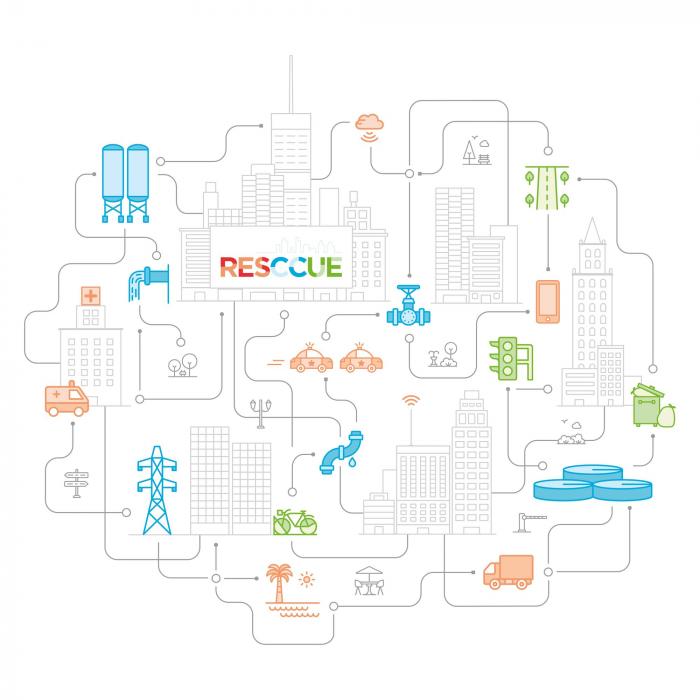
New Covenant case study available!
The Covenant city of Barcelona partnered with Cetaqua (Water Technology Centre) and 15 other institutions in the EU funded project RESCCUE to use insurance data in the development of a methodology that prioritises the adaptation measures to take and contributes to the updated version of the Barcelona Climate Plan.
The main focus of Barcelona in this project was the water sector, since water-related risks can have a significant impact on the correct functioning of the city’s urban services and its energy supply
Barcelona decided to go beyond urban resilience approaches to deliver a multi-scale, multi-sectorial and multi-hazard methodology. To evaluate risk exposure, it was important to define which areas of Barcelona are particularly sensitive according to their land occupation. This was made possible by combining data collected by the City Council and the Spanish Insurance Compensation Consortium.
There is a huge challenge and gap in sharing information among water operators, public authorities and the private sector to help Barcelona decision makers. Therefore, assessing, planning and monitoring urban resilience calls for a more cooperative and integrated approach.
In this regard, RESCCUE has developed flood depth-damage curves tailored for Barcelona. The curves indicate the permeability of buildings to help determine the vulnerability of elements at risk in Barcelona. These curves help the Spanish city to estimate the economic impact of floods, as well as resilience assessment, planning and management. These results helped identify the most vulnerable areas and revealed that improving the city resilience translates into potential economic savings.
The project provided the city of Barcelona with the knowledge and necessary information to update and enhance the Barcelona Climate Plan. One of the most important results is the better understanding of the links between city services in their efforts to tackle climate events. As part of the project’s results, a set of Geographical Information System (GIS) maps showing flood risks to Barcelona city services will be made publicly available in the resilience platform of the city council. Additionally, the data analysis carried out within RESCCUE has been used to update and confirm Barcelona’s climate projection dataset. These results will be used to plan climate adaptation actions such as retention tanks to absorb the greatest amount of rainwater in future weather events. Finally, the prioritisation method of adaptation measures to deal with climate impacts, proposed by Cetaqua, has been a useful tool to facilitate decision making processes within the city council.
Read the case study in English
Read the case study in Spanish
Picture credit: RESCCUE Project
